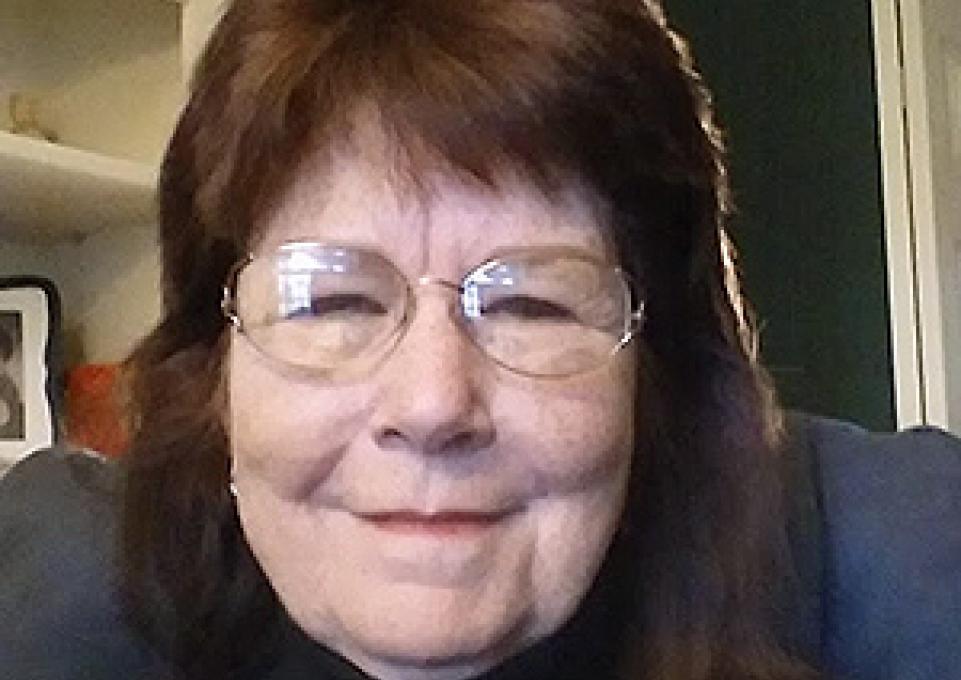
More than 30 years after listening to customers at her family’s chocolate shop confide their problems, Carolyn Hilarski, professor of social work, is still offering advice. It’s packed with wisdom gained from painful life lessons as well as years of research and teaching.
“We had an antique couch and people liked to sit on it for hours and talk,” she said of her time working in her husband’s family business, Hilarski’s Chocolatiers. “I would be dipping chocolates, and they would share problems they were having with their children and partners, especially related to drugs and alcohol.”
She was familiar with the nemesis—she’s the child of alcoholics and her first husband was an alcoholic.
“I thought maybe I should become a counselor,” she said. “Then I met a social worker and realized that was the line of work I wanted.”
After decades of doing exactly that, she joined the Buffalo State faculty in 2006 and is grooming the next generation of social workers and substance-abuse counselors. She draws on experience she developed in the 1990s working as an addiction counselor in Rochester, New York, when crack and cocaine abuse grabbed the headlines now dominated by opiates.
She isn’t surprised that authorities describe prescription drug and heroin abuse as an epidemic. But she added that drugs are drugs; substance abuse is the ugly monster it’s always been.
“Users are always chasing the same high and once they become tolerant, they have to go the next level to achieve it,” she said.
The cocktail mix of drugs, however, is more dangerous.
“If people mix drugs like heroin and serotonin, it can be deadly.”
Also, she noted that adults and children alike have increasingly been led to believe pills are the only solution for pain. While the government is trying to educate providers and get prescription medication under control, she said that we’re not thinking in terms of alternatives to strong pain medication.
“Cold packs and warm packs can work for some injuries and pain,” she said. “Mindfulness exercises can work for others, as can talk therapy.”
She added that studies have shown it’s more often psychic, not physical, pain that kids are trying to treat with prescription painkillers.
Despite best efforts of loving parents or caretakers, kids often inherit a proclivity for alcohol. That definitely was the case with her younger son, Christopher, who couldn’t shake his addition to the bottle, which she said was handed down from his father.
Tragically, in 1989 when he was 22, he died in a motorcycle accident. After rounding a curve, he hit a truck that was temporarily parked in the middle of the road.
“He was coming off a two-day binge, and his reflexes were probably slowed,” she said. “Certainly, alcohol played into what happened.”
Addiction is tough to shake once kids are hooked, so she provides prevention techniques to parents, starting with being hypervigilant about their children’s choice of peers.
“Watch who they hang out with and where they go on the Internet,” she said. “Find out what friends’ houses they visit and if their parents are home.”
She also suggests creating rituals for the family.
“Eat dinner together regularly, have a weekly movie or game night where everyone is relaxed and you can have meaningful talks,” she said. “Be OK with pushback from all the questions and boundaries you’re providing. Kids need them whether they will admit it or not.”
Also, she’s advises parents to take a look at their own prescription drug use and levels of intoxication.
“Everything you do is role-modeling,” she said.
And finally, parents must enforce strong consequences in order to keep their kids clean.
“Expect children to take responsibility, to follow the rules, and have reasonable discussions when they mess up,” she said. “Emphasize that they have a responsibility to their families, their neighborhoods, and themselves to make smart choices.”
About Carolyn Hilarski
A professor in the Buffalo State Social Work Department, Hilarski served as chair from 2009 to 2015. She joined the faculty in 2006 after full-time teaching positions in the social work departments at North Carolina State University and the Rochester Institute of Technology. She is a certified substance abuse social worker and has worked with adolescents and adults dealing with substance abuse, sexual abuse, and other trauma. She edited the book Addictions, Assessment, and Treatment with Adolescents, Adults, and Families (2005, New York. Haworth Press), and co-edited Comprehensive Mental Health Practice with Sex Offenders and their Families (2006, New York. Haworth Press) and Handbook of Social Work in Child and Adolescent Sexual Abuse (2008, New York. Haworth Press)
